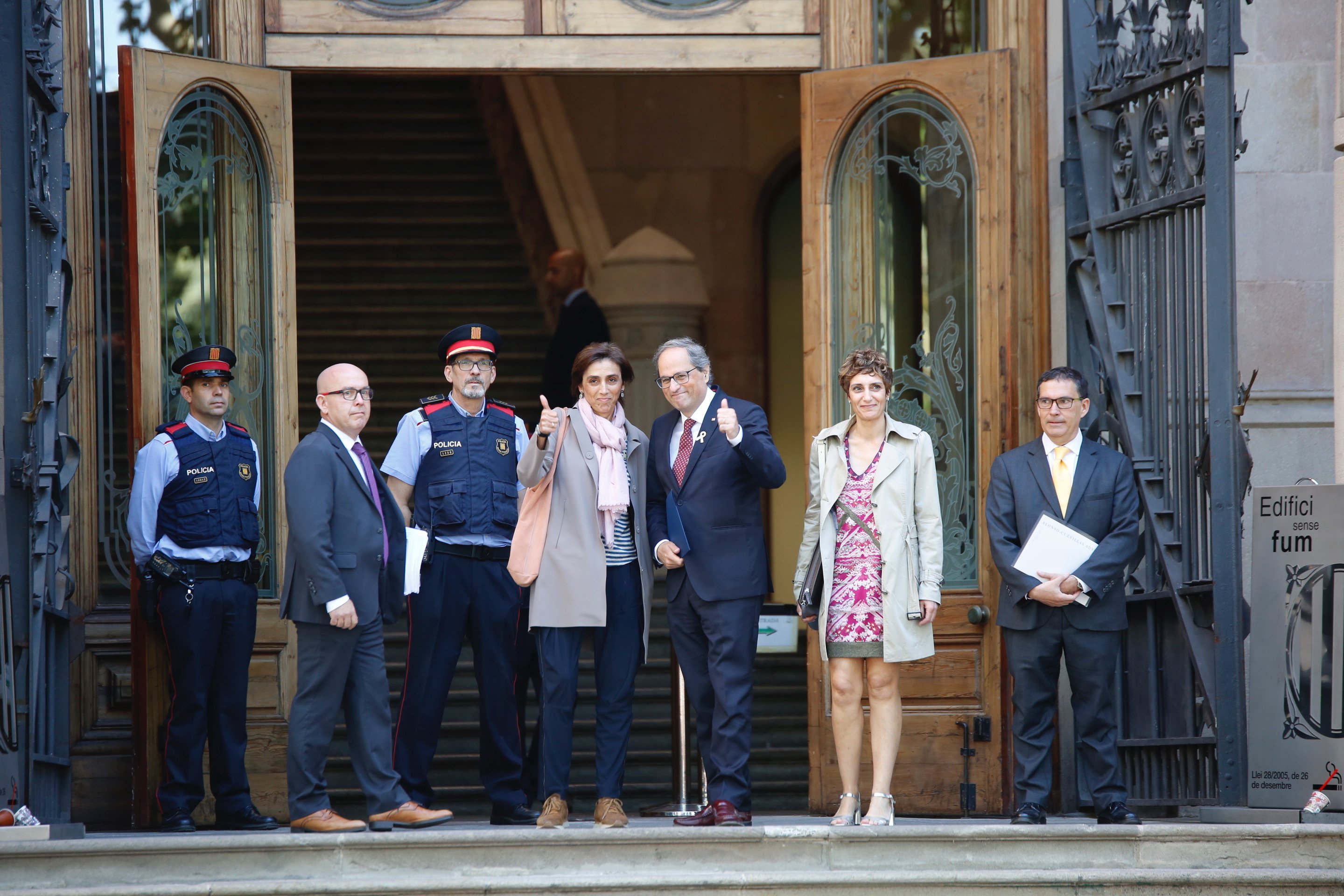Controversies still swirl around the trial of Catalan president Quim Torra. He is accused of disobedience for not removing yellow ribbons from public buildings during the election campaigns earlier this year. If convicted, prosecutors are calling for him to be banned from holding public office for twenty months and fined €30,000 (£27,000; $33,000).
The first issue is over when the hearing should be held. The court had originally scheduled it for 25th and 26th September. That day, however, was already earmarked for the general policy debate in the Catalan Parliament when the president has to present his government's programme for the coming year. The court said today that "the agenda of the Parliament of Catalonia was consulted which, at that point and still today, did not have any activities scheduled". The dates in question are marked in blue on the Parliament's website, representing "planned sessions", as they are normally only formally called about a week in advance.
The trial also argues that the president's appeal against the date did not include any documentation to justify considering changing the plan. The president, however, said he wouldn't formally ask them to change it, but suggested that if it ended up clashing with his parliamentary commitment, he would skip the hearing and attend the debate instead.
Parliament sticking by its date
Within minutes of the court announcing its decision today, the pro-independence majority on the Parliament's Board of Spokespeople announced it would stick by its date too. PSC, supported by Cs and PP, had called for the date for the debate to be changed, accusing the government of "using them" to continue with its strategy of "confrontation". JxCat sources, meanwhile, said after the meeting that Torra "has no interest in changing the date" of the debate, saying that it's up to the court to make a change, as their announcement came second.
The opposition, however, say they don't understand why it can't be changed, when such decisions have been taken for "less important" reasons on other occasions, and when, although it's been pencilled in since July, it's not yet been officially confirmed. Cs and PP said that if the president disobeys the court and doesn't attend the hearing, they don't want it to be "their fault". En Comú, for their part, say the court should have taken note of the date and changed its mind, but they don't understand why Torra didn't then ask for the debate to be delayed to another date.
The recusal
The other controversy is centred on one of the court's judges, namely the court's president, Jesús María Barrientos. Yesterday, Torra called for him to recuse himself from the case, arguing he has expressed public opposition to yellow ribbons in the past. The court today asked him to correct a number of errors of form in the application, for example, that it is unsigned by Torra. They say it is also missing additional documentation referred to in the filing.

